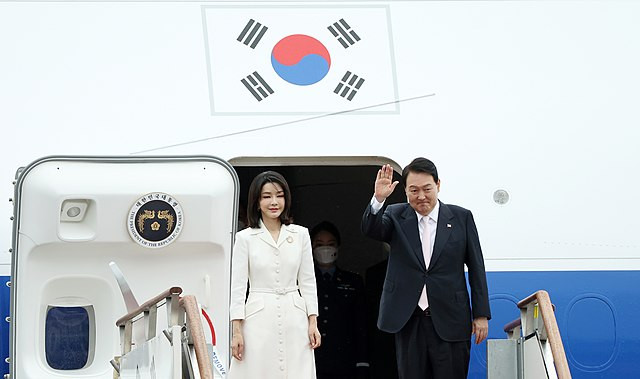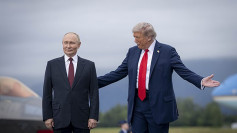South Korea descended into political turmoil on Tuesday night as President Yoon Suk Yeol declared martial law in a surprise late-night television address, citing an "anti-state plot" linked to pro-North Korean forces. The unprecedented move, the first martial law declaration in over four decades, was met with swift backlash from lawmakers and citizens alike, culminating in an early-morning vote by the opposition-dominated National Assembly to overturn the decree.
The announcement, which Yoon said was necessary to safeguard the nation's democracy, immediately drew comparisons to South Korea's authoritarian past, when military regimes often invoked martial law to suppress dissent. Yoon vowed to "eradicate pro-North Korean forces and protect the constitutional democratic order," but he did not provide specific evidence of the alleged threat.
Helmeted troops were deployed to parliament shortly after the declaration, setting up barricades around the National Assembly building. Live footage showed soldiers attempting to enter the premises, only to be pushed back by lawmakers' aides wielding fire extinguishers.
The opposition, led by Lee Jae-myung of the Democratic Party, condemned the move as unconstitutional. He said the president's declaration is illegal and a direct affront to our democracy. Even members of Yoon's conservative People Power Party voiced dissent, with party leader Han Dong-hoon calling the decision "wrong" and pledging to oppose it.
Public reaction was swift and pointed. Social media platforms were flooded with expressions of disbelief and anxiety. "Martial law? I thought it was deepfake content," one user on X wrote, while another commented, "This feels like the 1980s all over again. Are we really going backward?"
The controversy comes at a precarious time for Yoon, whose approval ratings have plummeted amid political deadlock and allegations of influence-peddling involving him and his wife. Critics argue that the martial law declaration is an attempt to deflect attention from his administration's struggles.
Adding to the gravity of the situation, the United States, a key ally of South Korea, voiced "grave concern" over the developments. U.S. Deputy Secretary of State Kurt Campbell emphasized that Washington was closely monitoring the situation. "We have every hope and expectation that any political disputes will be resolved peacefully and in accordance with the rule of law," Campbell said.
The White House, which confirmed it had not been notified in advance of Yoon's announcement, described the unfolding events as "deeply concerning." Despite the chaos, the Biden administration reiterated its "ironclad" alliance with South Korea.
Martial law holds a fraught history in South Korea, where memories of military crackdowns during the authoritarian regimes of Park Chung-hee and Chun Doo-hwan remain vivid. In the 1980s, the government used martial law to suppress pro-democracy protests, leading to mass arrests and deaths.
Under Yoon's declaration, all political activities and acts that "incite social disorder" were banned, and striking workers were ordered to return to their posts within 48 hours. Critics likened the edict to the tactics of past dictatorships, further fueling public discontent.
By dawn, the National Assembly had convened an emergency session, with 190 of 300 lawmakers voting to overturn the martial law declaration. Speaker Woo Won-shik announced the decision and said the lawmakers will "protect democracy with the people."
As the dust settles, questions remain about Yoon's leadership and the future of South Korea's political stability. Observers worry that the martial law episode could deepen divisions within the country and undermine its democratic foundations.






